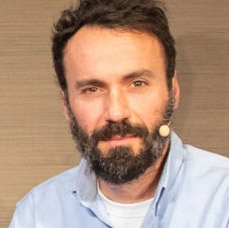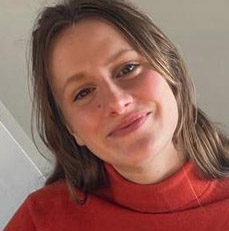“Listen to science” has become one of Fridays for Future’s emblematic demands.

TEXT Timothée Ingen-Housz & Paola Perrin de Brichambaut, Universität der Künste Berlin
If scientists have indeed demonstrated the anthropogenic nature of the climate crisis, if they have provided technological solutions to reduce emissions, they haven‘t yet discovered how to implement them democratically without risking widespread social, political and economic disruptions. The shift in focus from “what to do” to “how to do it” opens up new sets of questions and challenges – but also new opportunities.
Transforming our economies to reach CO2 neutrality is a huge technological, political, and social undertaking. It hasn‘t yet been enough described and practiced as a complex and multidimensional communication process. Scientists must learn to speak across disciplinary boundaries to optimise their transformation solutions. They must also enlarge their understanding of the knowledge they need to implement them: this may include sources generally remote from the natural sciences and engineering. To answer “how” we implement solutions, we must know “where” and “when” transformation processes will be initiated, and “who” will be involved. New mobility and energy solutions may look far ahead into the future, but they can only begin to unfold with a solid understanding of the current status quo. Our current addiction to fossil fuels is anchored in complex webs of habits, interests, needs, and material conditions. It is also rooted in the anxieties and uncertainties of a wide range of actors and stakeholders directly exposed to the transformation to come. Without taking their perspectives in consideration, we are missing half the picture.
Citizens, public administration, the private sector, civil society, professionals, craftspeople, business owners, politicians, investors, innovators, and educators are experts of their own lives, practices, and worlds. Their lived experience should function as a rich resource for planning the implementation of transformation processes. These include for instance the installation of bike lanes in urban centres, the use of sustainable materials in large construction projects, the installation of heat pumps, the implementation of complex urban consolidation programmes or the greening of street space. Not everyone will see arising challenges and opportunities from the same angle. Not everyone will be motivated by the same prospects. Not everyone will embrace the same narrative or accept the same risks. Every stakeholder group must be consulted to prepare the transitional steps favouring the productive adoption of new ways to move, build, live, consume, trade, and work - and prepare for the difficulties they may find on the way.
In the contemporary practice of urban planning, participation is regarded as an essential process to gain public support and align the key actors needed to achieve any significant transformation. Consultation methods can be designed in a variety of ways to involve stakeholders in the definition of the transformation problem they will be exposed to. In this regard, the development of prototypical “transition scenarios” is considered a fruitful way to “engage” in co-creative relationships. These consultations must be approached as ongoing processes taking into account what Horst Rittel and Melvin Webber famously called “wicked problems”: every solution may bring along its own set of unpredictable problems. In light of their ongoing “wickedness”, transformation projects may trigger bitter conflicts, but they could also reveal new opportunities for social, economic and technological innovations. The actors involved in the transformation effort are best placed to observe these unexpected twists and turns, and to communicate their experience first hand.
Given the need to account for multiple perspectives and for unpredictability in transformation processes, we plead for the design of an ongoing knowledge co-creation platform. This platform should reflect and organise the complexity of the coordination effort. The arts and design can go far beyond “raising awareness” to help model implementation processes in their ever-changing complexity. Designers and artists can draw upon decades of experience in the practice of co-design workshops, interface design, pre-visualization techniques, and immersive simulations to stimulate and maintain participation. It can also help develop navigation methods to extract and organize insights and communicate them to policy making and scientific communities.
To support the transformation to come and increase our chances to navigate unexpected crises while staying focused on the long term goals, this communication effort must be placed at the core of the research work we do. Without creative design solutions, we may miss precious opportunities to communicate complexity in transformative ways. The involvement of the Berlin University of the Arts in the upcoming Einstein Center Climate Change and Public Policy of Human Settlements* is committed to this endeavour, in close collaboration with research partners of the Technische Universität Berlin, PIK, Charité and many others.
*affiliated to the Climate Change Center Berlin Brandenburg
Programme tips
4. NOV 18.00, CAMPUS, in Person, Deutsch
Climate:lab #4
Let’s Talk
Climate Change Center
4. NOV 11.30, CAMPUS, in Person, Deutsch
Torfitz. Das Planspiel zum Strukturwandel
Institute for Advanced Sustainability Studies (IASS)
5. NOV 18.00, CAMPUS, in Person, Deutsch
Zürich – Berlin. Gemeinsam weiter für die nachhaltige Entwicklung
Zurich meets Berlin
5. NOV 19.30, CAMPUS, in Person, Deutsch
Knowledge Exchange – Gemeinsam Globale Herausforderungen Angehen
Berlin University Alliance
6. NOV ab 13.00, POP Kudamm, in Person, Deutsch | Englisch
Celebrating the Diversity of Science
Paul-Drude-Institut, Forschungsverbund e.V.
8. NOV 19.00, Vertretung des Freistaates Sachsen beim Bund, hybrid, Deutsch
Prognosen für Mensch und Erde. Welches Wissen brauchen wir, um zu handeln?
Max-Planck-Gesellschaft

Timothee Ingen-Housz teaches media conception & dramaturgy in the UdK Berlin, and currently develops scenario co-design methods with researchers from TU, Charité, PIK, Potsdam University, and a variety of societal actors of the private and public sector.

Paola Perrin de Brichambaut is a research associate at the UdK Berlin. She has been involved in the development of a co-design method to support stakeholder and citizen consultation in climate-related transformation at the Berlin level.




